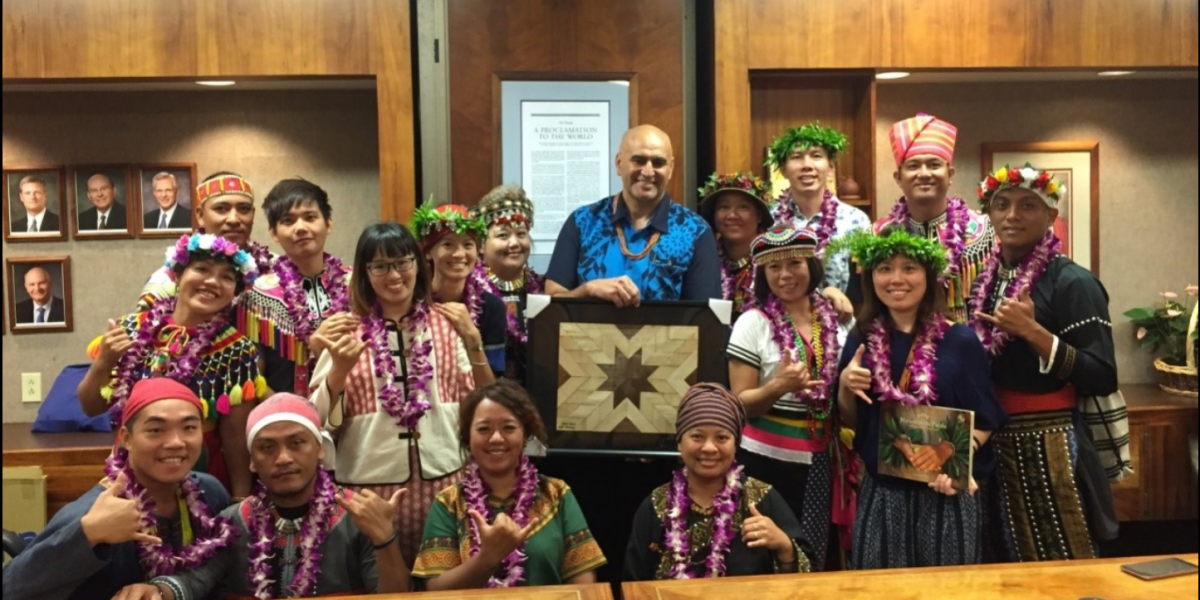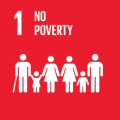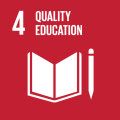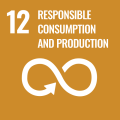Hawaii 2018 Cultural Sustainability Educational Tour
The Alliance Cultural Foundation's (ACF) third annual Hawaii 2018 Cultural Sustainability Educational Tour, dated 7-16 October, brought together individuals from across the private, public, and non-profit sectors to embark on a journey of co-learning through exploration. From government policymakers, policepersons, cultural workers, and tribal workers to teachers, the sixteen participants were grouped to be the driving force of sustainable change and growth in the Hualien-Taitung region. They visited native Hawaiian villages – the Kahana Valley and Kalapana Town, Brigham Young University-Hawaii (BYUH), Polynesian Cultural Center (PCC), the Hawaii Volcanoes National Park, and Pearl Harbour, to name a few. On the 17th of October, the team shared their findings and fresh perspectives.

At the Kahana Valley, tribe elders were especially touched to see the group’s interest in their village culture. In the village, most youths leave to build their lives elsewhere. They shared stories of the Kahana Village, a land that first belonged to the Hawaiian dynasty and then became farmland to the Chinese and beach to the white Americans; when the native Hawaiians eventually repurchased it, the government acquired it shortly in exchange for a 100-year lease. With the lease ending in 2035, the natives hope to one day buy back the land that was formerly theirs. A similar version of the story is shared among many Indigenous communities worldwide.

Kalapana Town, sometimes known as the lost village, is where descendants of King Kamehameha, the founder and first ruler of the Kingdom of Hawaii, still reside. While visiting the town, the group witnessed stones engraved 'HAWAIIAN KINGDOM is still here, we never left.' It was a powerful message that left a lasting impression on the team.

During the BYUH and PCC visit, the team was especially touched by David K. Preece's lecture. Preece, the founding academic director of BYUH's Center for Hospitality & Tourism, shared the topic of a 'Sense of Place.' The lecture gave perspective to how a sense of place can be created; one example being the PCC which has become not only the representation of Polynesian culture and its community, but a main economic source in its region.

In the group's encounter with PCC's Seamus Fitzgerald, Director of Talent Management, they found meaning in his words which quotes, "You have to succeed to survive, but you need your heart with the ancestors because they tell you how to stand up; but never forget, God creates all, only when we [give] it [our] all, can we succeed." In following Fitzgerald's talk, the team further understood the purpose of the Cultural Sustainability Educational Tour. Those who once thought mainstream and tradition could not coexist gained the perspective that to survive, one must accept mainstream while staying connected to tradition.

During the group's visit to the Hawaii Volcanoes National Park, they saw the importance of good storytelling and its impact on one's experience of learning about another's culture and history. They felt that their guide could have shared more about the myths of Hawaii and reflected on how they would have if they had been put in the same position to touch people's hearts.
At the Outrigger hotel, the team experienced Outrigger hospitality and witnessed its cultural and environmental values. Engaging with hotel staff connected them with the local culture, even learning basic ukulele and hula dance.

At the Office of Hawaiian Affairs (OHA), the team had the opportunity to learn its organizational structure. Since the year 2000, any resident of Hawaii can be elected as a board member. Additionally, each Hawaiian senate must undergo training designed by OHA to learn the native culture and policies. OHA's practices allow the government and people to co-work, and the opinions of all Hawaiian residents are accepted.
Through the tour, the group met diverse cultures of people who came together to value and respect the native Hawaiian culture. The Cultural Sustainability Educational Tour group, one who would otherwise not have had the opportunity to cross paths so intimately, ends their tour fruitfully, understanding that with every end is the beginning of change.







